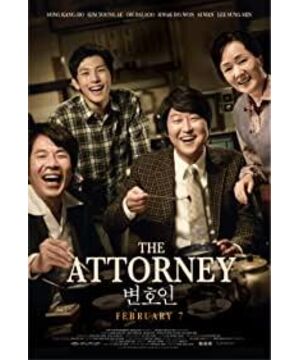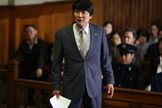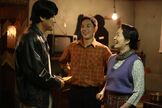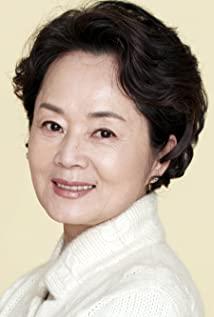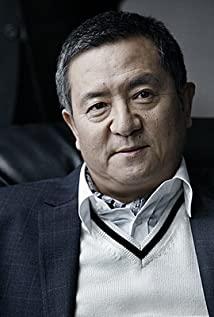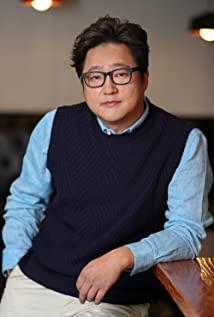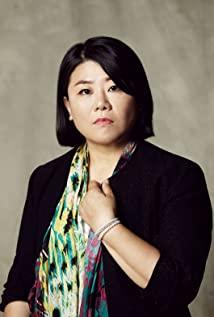If you want to understand this work well, you must understand the social background behind the film. After the end of World War II, influenced by the Cold War mentality, the Korean peninsula was divided into North Korea supported by the former Soviet Union and South Korea supported by the United States. On June 25, 1950, the Korean War broke out. After the war, the military strongman Park Chung-hee staged a coup d'état to come to power. While vigorously developing the economy, he imposed a political dictatorship and suppressed the domestic democratic movement. In 1979, successive military coups took place in South Korea, kicking off the military dictatorship of Chun Doo-hwan, and waves of domestic workers' movements and student demonstrations continued one after another. On May 18, 1980, the "Gwangju Movement" that shocked the whole country broke out. The "Kuyulian Incident" in the movie was a wave in the wave of the Korean democratic movement at that time.
The protagonist lawyer Song Youshuo came from a poor background. He had no higher education and passed the judicial examination with his own efforts, and became a judge from an ordinary construction worker. After resigning from the court, he seized the opportunity of the booming economy of South Korea and the booming real estate transaction. He engaged in legal consultation on real estate registration. After his peers swarmed to follow the trend, he changed his career to tax consulting with a high degree of vision, so he quickly made a fortune. In this respect, this is a man with a mind and a vision. In order to develop his business, he personally carried a small bag and advertised everywhere, even if he was mocked by his peers as a "nightclub boy", he didn't care. After he became rich, he moved his family into the building he built when he was a construction worker, and showed his children the words "never give up" he carved on the wall. In this respect, this is an ambitious person who is willing to endure hardship. After he succeeded in his career, he returned to the small restaurant where he had eaten Bawang's meal when he was in a downturn, apologized to the proprietress personally and offered financial compensation, and dined here as a designated place. From this point of view, this is a person with a conscience and a righteousness. The seemingly bland description at the front sets the stage for the twists and climaxes that follow.
In the second half, out of sympathy for his benefactor and righteous indignation at the dark phenomenon of society, Song Youshuo resolutely gave up his good "money way" to defend Park Zhenyu, the son of the proprietress who was framed as a red element. Just like what his partner said to him, "From today onwards, it is you who kicked your own stable life." Such a turning point is surprising, but it doesn't feel stiff at all, because he is not just for the sake of Fighting for the people I sympathize with, but also for myself and my children, "I want my children, Jianyu and Yanyu, not to live in an era when the brakes are hit by such absurd things." Upholding this belief, Even facing the powerful state apparatus, the tilted legal balance, the personal threats in the dark, and the abuse and beatings of the opponents cannot stop his determination.
Song Youshuo's deafening words in the courtroom poured out the hearts of him and all the citizens: "The country, what is the country that the witnesses said? Article 1, paragraph 2 of the Constitution of the Republic of Korea, the sovereignty of the Republic of Korea belongs to the state, and all power is vested in the state. The nation is born, and the nation is the nation. But the witness has no legal basis, and blindly emphasized national security, and trampled on the state's repression. A sick maggot of an innocent country, just a dirty helper of the military regime." Every time I see this, my blood boils. What is a hero? Heroes are those ordinary people who would rather be smashed to pieces to maintain the righteousness than to join forces and steal their lives.
I have always had a soft spot for Korean movies, not only because of the endless creativity and imagination bred in this vibrant soil. More because of the Korean filmmakers' sense of social responsibility and the courage to face up to history. For such sensitive historical events as the "Gwangju Movement", Korean filmmakers put them on the movie screen again and again, so that the world can understand the truth and reflect from the heart ("The Color of Love", "Beautiful Holiday", "26 Days", etc.). On the other hand, in the domestic film industry, there is either a lack of creativity, chewing and chewing a pot of cold rice, frying and frying (four famous novels, Jin Yong's martial arts novels, etc.); Kitsch ("Personal Customization"); either ignoring reality, blindly pretentious, and whitewashing the peace ("Little Times", etc.); or blindly following the trend, blindly pursuing visual technology, and losing the soul ("The Promise", "House of Flying Daggers", etc.). I think this is not only a shame for Chinese filmmakers, but also a tragedy for the Chinese people.
View more about The Attorney reviews


